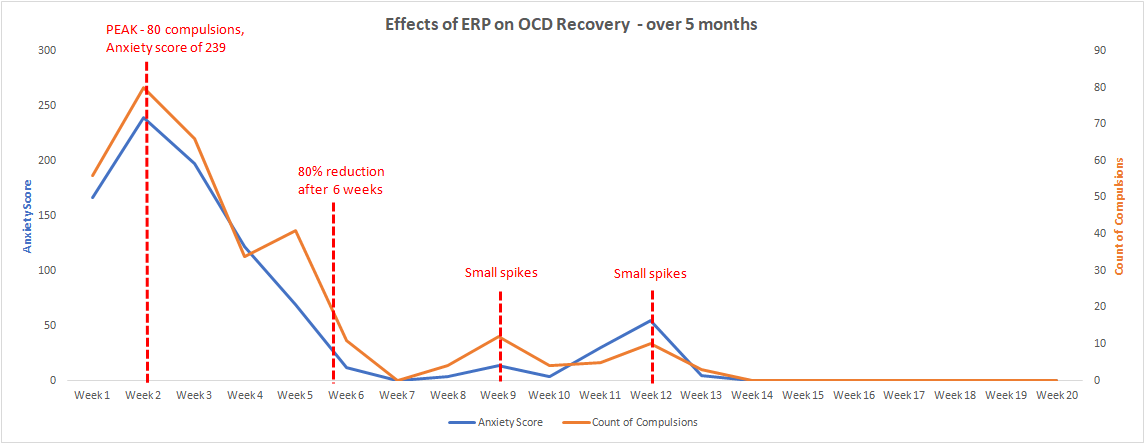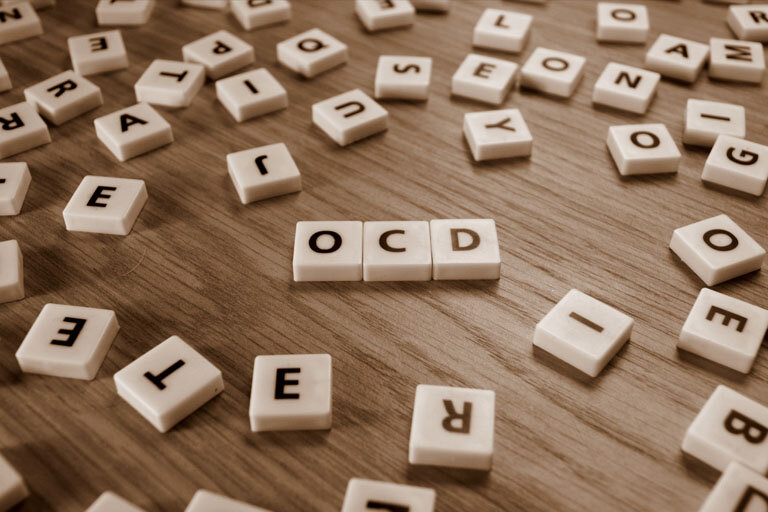
Know Your Enemy
“If you know the enemy and know yourself, you need not fear the result of a hundred battles.” - Sun Tzu
The first step to beating OCD is understanding how and why it works.

Graphing my OCD Recovery with Data
One question that I often see from OCD sufferers is: “How long will it take me to recover? What does the journey to OCD recovery look like?” So I thought that it would be helpful for readers of my blog to explain my own OCD recovery journey, the process, and some of my key learnings on the way.
I am a data junkie. I process and analyze lots of data as part of my day job. When I’m training for marathons, I analyze information about my heart rate and mile splits. So a more data-driven approach to OCD recovery felt natural to me, because I could hold myself accountable to actual results, and also be able to understand any underlying trends or patterns about how my progress was going.
Before going further - I want to set the disclaimer that this was my own recovery journey, and what worked for me personally. Even if the underlying principles of OCD recovery (e.g. ERP) are the same for everyone, your own personal recovery journey might look different. Some exceptional people might recover in 1 or 2 months of dedicated ERP. Some people may take longer. As you can see from my chart below, it took me approximately 5 months. I say this because I don’t want to discourage anyone if they feel like they are making progress too slowly - OCD recovery can and will differ from person to person. If someone says, “I recovered in a month!” and you’ve been struggling with ERP for a year, don’t assume that you are doing something wrong or feel discouraged. OCD recovery is highly personal to each individual and you shouldn’t benchmark your own progress against someone else’s. No matter what, you should trust in the process and trust that a dedicated CBT regimen like ERP or ACT will help you recover, no matter how long it takes.

My Recovery Journey and Why I’m Writing this Blog
I’ve suffered from Obsessive Compulsive Disorder (OCD) for most of my life (thirty years), although I didn’t always realize that my compulsive habits, mental tics, and constant feelings of anxiety were actually caused by OCD. In fact, as I suspect is the case for many OCD sufferers, I thought I couldn’t possibly have OCD, because I didn’t obsessively clean my kitchen or re-arrange the pens on my desk, like how it is often portrayed in social media and pop culture.
All I knew was that something was wrong with me - I had horrible, disgusting intrusive thoughts almost 24/7, starting in my late teens and lasting well into adulthood. I would feel compelled to do specific activities a certain number of times in order to prevent some horrible catastrophe from occurring in the future, or constantly ask myself why I had such evil thoughts and mental images and if that meant that I, too, was an evil person who did not deserve happiness or love. I did have some physical compulsions (checking doors and locks, re-reading emails at work) but most of my compulsions were mental - things like constantly ruminating about past events, wondering if I had said something offensive to someone at some point, or being terrified of having random sacrilegious or blasphemous thoughts pop up in my head, amongst other fears. As a result of my compulsions being primarily mental, I was able to hide my condition quite well from friends, family, and coworkers - indeed, if you told any of them that I spent the better part of the past ten years wracked in constant anxiety and depression, they would be incredibly surprised. I was able to function as a human in every day normal life - but my mind was a constant battlefield with me warring against the demons in my head.